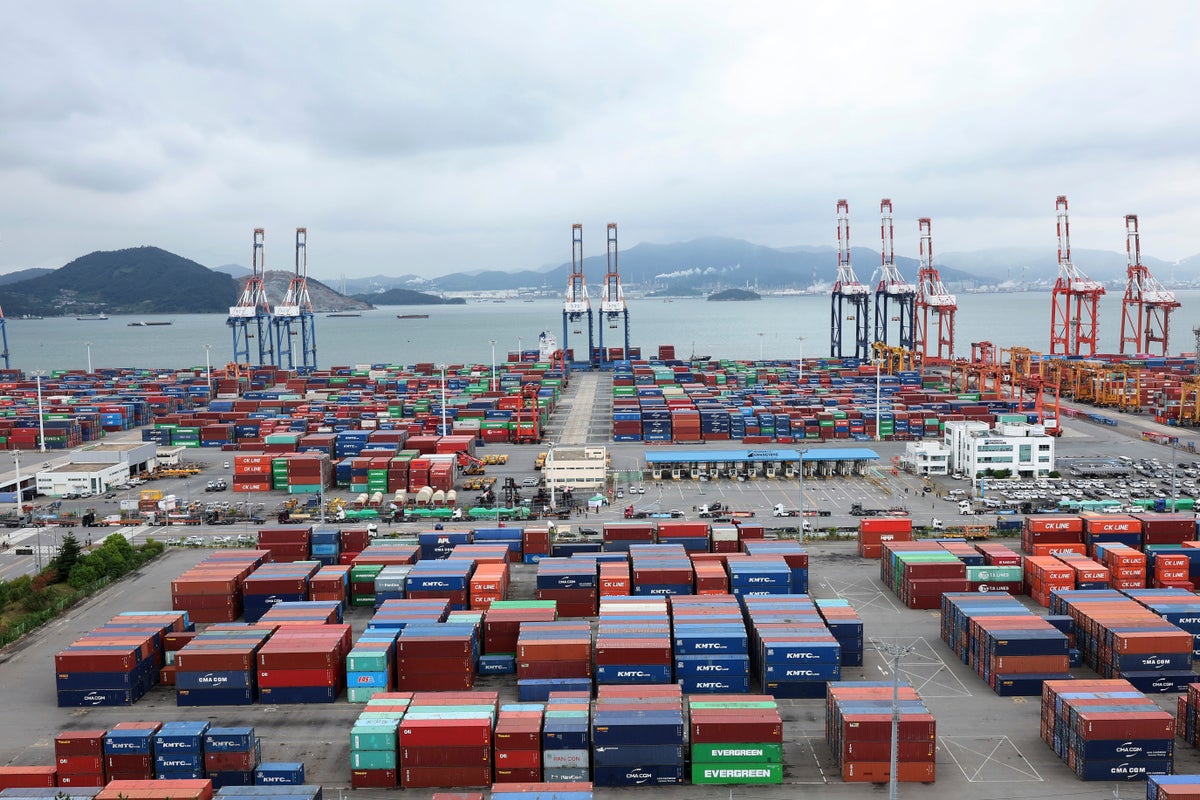
South Korea’s prime minister warned Tuesday that the disruption of cargo transport could cause “irrecoverable” damages on the country’s economy, as a nationwide truckers' strike entered its eighth day.
About 6,840 truckers were rallying Monday at 14 sites across South Korea, continuing to trigger a delay in the shipment and delivery of key items like steels, cement, petrochemicals and tires, the Transport Ministry said in a statement.
The statement said some steel and cement-related factories halted their operations. It accused some striking truckers of obstructing cargo transports at some major southeastern ports.
During a Cabinet meeting, Prime Minister Han Duck-soo, South Korea's No. 2 official, said the “illicit activities” by the striking truckers will never receive public support, according to Cho Yong-man, the No. 2 vice culture minister who serves as a government spokesperson.
Cho cited Han as saying that the disruption of cargo transport could pose “a big irrecoverable blow” to South Korea’s economy, which already faces other difficulties.
The Ministry of Trade, Industry and Energy said in a statement Monday that the first six days of the strike caused an estimated 1.6 trillion won ($1.2 billion) in damages.
Truckers are on a strike, calling for an extension of temporary measures guaranteeing minimum wages amid soaring fuel prices. They met government officials several times but each meeting ended without any breakthrough.
In a statement Monday, the Cargo Truckers Solidarity issued said the Transport Ministry lacked the resolve and capacity to narrow differences over the truckers’ demand. The Transport Ministry said it’s seeking to continue talks to address the issue.
South Korean officials and experts say the strike’s damage has so far been limited to the country’s domestic industry, though a prolonged strike may undermine the global supply chains already hit by Russia’s assault on Ukraine and China’s COVID-19 restrictions. There have been no reports of substantial disruptions of key South Korean export items such as semiconductors and automobiles yet, Industry Ministry officials said.







